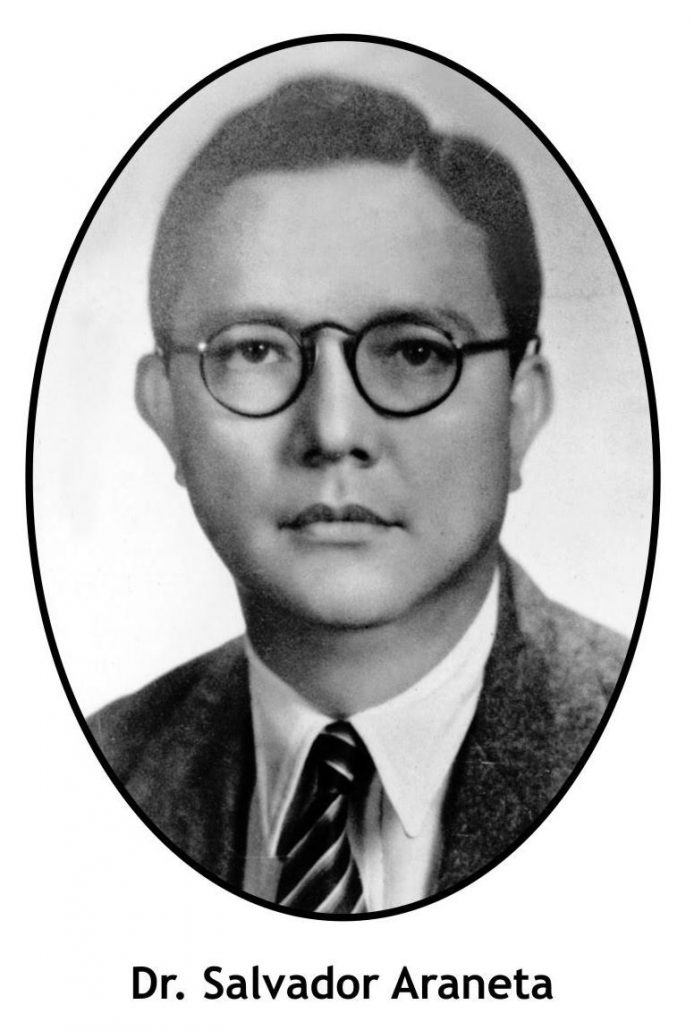 Araneta on collision course with President Quirino on C Sugar
Araneta on collision course with President Quirino on C Sugar
Dr. Salvador Araneta disagreed with President Elpidio Quirino on the matter of C Sugar and they went on a collision course.
C Sugar was the classification given to surplus or emergency sugar, after meeting the A Sugar quota for exports to the United States and B Sugar for local consumption.
C Sugar, however, did not exist since the A Sugar quota for the United States could not even be filled. From the national point of view, only a few individual planters could have a production in excess of their respective A and B sugars.
When the issue of allowing the export of C Sugar to Japan took place, it was at a time when the price of world sugar was higher than the price in the American market. It was also at a time when the country had not covered its commitment in the exportation of sugar to the American market when the country was given the benefit of quotas, which was indeed a privilege much coveted by other countries.
However, President Quirino was in favor of granting the application of a certain exporter to sell to Japan. Araneta opposed this on the ground that “we had no moral right and it was a bad national policy to take advantage of a temporary situation, at a time when our prewar production had not yet been completely reached.”
Two members of the Export Control Committee agreed with Araneta.
Since the request for the exemption was sent directly to the Committee, Araneta did not think that it was necessary to pass it on to the President, unless the President would take the initiative of wanting to discuss this with him. Both the Philippine Sugar Association and the National Federation of Sugar Planters passed a resolution against the export of C sugar to Japan.
Sen. Francisco Delgado and congressmen Carlos Hilado and Eulogio Rodriguez Jr. also opposed the plan.
Even the legal mind of Claro M. Recto issued a statement that clearly supported Araneta’s views and that of the Export Control Committee. They all believed that there would be repercussions from the United States, which closely observed if the Philippines would come up and deliver the commitment to them. There were 29 applications that had been filed to export more than 384,000 tons of sugar to Japan.
The collision took place at a meeting where Araneta and former Secretary of Justice Jose Bengzon had gone to Malacañang to bid farewell to Quirino who was taking the presidential yacht “The Apo” on a tour of the provinces. Bengzon had called Araneta to a meeting in Malacañang.
Araneta recalled that Quirino, who had just awakened from his daily nap, angrily asked him, “What is the matter with you? Why are you obstructing the application of Mr. Filadelfo Roxas for the exportation of sugar to Japan?”
Araneta sensed that the President’s tone of voice was evidently an expression of high disapproval of the position he had taken and a lack of confidence in his judgment, made in front of a former co-member of the Cabinet.
He calmly answered, “Mr. President, if you no longer need my services, you can have my resignation any time.”
Quirino replied, “Very well.” And he left without any further comment.
True to his word, Araneta hurriedly went straight to his office and was glad to see that his secretary was still there. He dictated his letter of resignation which was immediately brought by a messenger to Malacañang.
Undoubtedly, the message was transmitted to Quirino that evening by radio. The following morning, Araneta received the reply of Quirino accepting his resignation.
That day Araneta went to the office to bid goodbye to the personnel in the office. (To be continued/PN)

